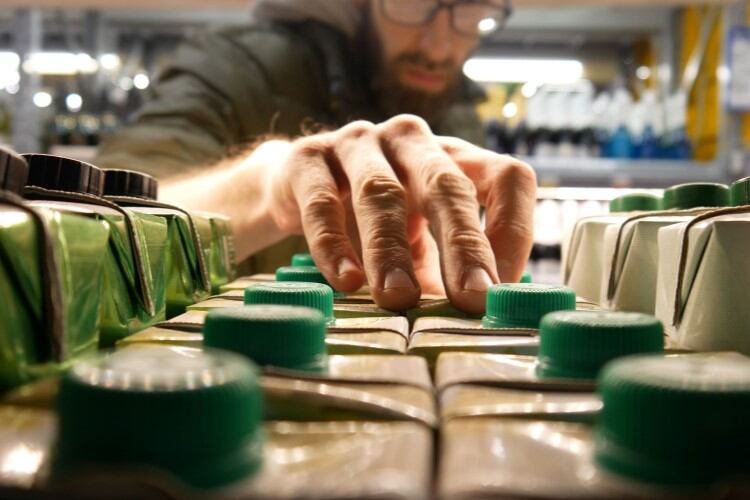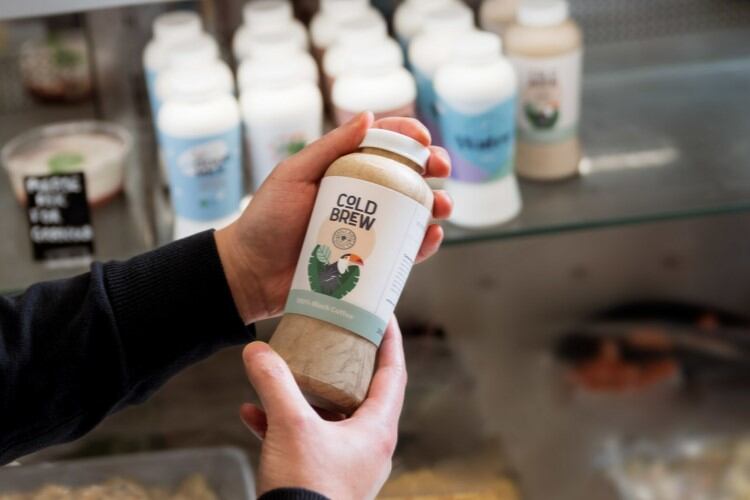According to new research released by packaging manufacturer Tetra Pak, around a quarter (24%) of food and beverage managers, directors and business owners in the UK and Ireland still believe sustainability should be their organization’s top priority in 2023. And while 36% of senior decision-makers consider sustainable packaging important, 93% are planning to focus on issues other than sustainability going forward.
This is due to the tough macro-economic climate and in particular, the labor and supply chain disruptions many are still facing. According to Tetra Pak’s study, 41% of businesses continue to face supply chain challenges and disruption, with raw material shortages and price increases remaining among the key factors behind this.
The poll was carried out by Censuswide on behalf of Tetra Pak and surveyed 150 food and drink business leaders across the UK and Ireland, and 511 consumers across the UK in October 2022.
“Our research has shown shortages of raw materials and price increases remain two of the biggest supply chain challenges facing businesses today,” explained Alex Henriksen, managing director at Tetra Pak UK and North Europe. “While these issues have existed for some time, but recent geopolitical tensions, alongside economic pressures including labour shortages and aftershocks from the COVID-19 pandemic have strained supply chains worldwide.”
Shifting resources away from sustainability hides dangerous pitfalls, however, as consumers are increasingly backing companies which invest in sustainable practices.
“While more and more businesses are recognising the importance of sustainability, 93% of those surveyed are planning on prioritizing other issues as a result of the current macro-economic climate,” he explained. “What’s more, 70% of producers and manufacturers admit to other factors taking priority over the next 12-14 months. This suggests that while businesses are aware of the importance of implementing a robust sustainability strategy, ongoing issues such as inflation and the rising cost of living are starting to force leaders to divert resources elsewhere.”
At the same time, ‘it’s clear consumers are increasingly supporting companies who demonstrate their commitment to lowering their carbon footprint,’ he added, highlighting that companies’ decarbonization efforts are increasingly having a bearing on purchases made for more than half of consumers in the UK and Ireland. “Our research found that two thirds now highly value those taking steps to provide recyclable food and drink products,” the executive said. “As more people continue to support businesses disclosing their environmental impact, failing to adopt more sustainable packaging solutions may not only impact brand reputation, but also the bottom line.”
But if macro-economic factors are weighing in on businesses, how could the industry find a way towards re-embracing sustainability? According to Henriksen, ‘progress can be made by looking at the environmental impact of each raw material used throughout the value chain; push for recycling processes that can separate and reuse materials; and for innovation in packaging and food production’. And with decarbonization efforts increasingly having a bearing on purchasing decisions – according to TetraPak, more than a half of consumers in the UK and Ireland now consider a company’s sustainability credentials – then there’s little room for complacency. “This suggests we are now at a real turning point for businesses, who must innovate in order to keep up with changing consumer expectations,” Henriksen said.
In March, Tetra Pak, alongside a group of industry players including Danone, Oatly and WWF UK, published a report calling on the UK government to develop a framework for environmental labelling on food, to allow consumers to determine the environmental impact of their food. Other recommendations made in the report were around how to drive a UK circular economy, how food waste and loss can be reduced, and how better education can be delivered in schools on the impact of the food system on climate change.
“To help alleviate some of these pressures, we must work across industry, sector and with government to build a more sustainable, circular economy,” explained Henriksen. “This will help to build the resilience of food systems, as careful consideration of materials, alongside further innovation and collaboration on recycling infrastructure will improve food access as well as security. Ultimately, reducing resource dependency will help to ease these challenges long term.”
Of course, Tetra Pak has too faced criticism over its recycling rates – which have been relatively flat and lingering around 26-27% over the past three years – or the fact that its aluminum-lined packaging solutions, such as aseptic cartons used to keep heat-treated dairy milk or plant-based beverages and juices fresh in ambient conditions, require special processing to be properly recycled. At the same time, the company offers financial support and advise to local authorities (LAs) to initiate recycling schemes, but not all LAs have taken advantage or offer other easy-to-use ways to collect Tetra Pak waste from households.
In a bid to make packaging recycling easier for the consumer, the company is developing a polymer-based barrier to replace the aluminum layer in its aseptic cartons, and is also testing a fibre-based barrier. “Having conducted a successful 15-month commercial technology validation of a polymer-based barrier replacing the aluminium layer in Japan, we are now moving to the next level of development and are currently testing a fibre-based barrier,” Henriksen explained. “This marks an industry-first with the ambition of creating a fully renewable, fully recyclable and carbon-neutral aseptic package, showing the industry is beginning to make progress in developing innovative solutions for packaging.”
But to bring such solutions to the mainstream, food and beverage makers must be willing to adopt them. Asked what are some of the main concerns from manufacturers when it comes to swapping traditional aluminum-lined cartons with more sustainable options, Henriksen said the company works ‘closely with customers across all categories to mitigate any concerns they have on adopting new packaging, and to make sure they continue to meet their consumers’ needs’. “For example, we are currently testing a fibre-based barrier to replace the aluminium in carton packages, which is a first for food carton packages distributed under ambient conditions. A pilot batch of single serve packs featuring this material are on shelf for a commercial consumer test, with further technology validation scheduled.
“This innovation will be a huge step towards developing an aseptic package that is fully renewable, recyclable and carbon neutral. Its high paper content will also make it more attractive to paper mills, helping to realise a low carbon circular packaging economy. Given the industry’s willingness to work toward this goal, we are confident packaging innovations like this will be welcomed and widely adopted.”
Henriksen is clear however that in order to build on this momentum, greater collaboration between policymakers, consumers and the wider industry will be vital, alongside greater engagement between suppliers, processors, distributors and retailers.
“The government can also support this drive by introducing clear regulations around food and drink packaging recycling, as well as integrating policymakers into existing environmental departments. This will help create a more unified approach towards packaging innovation in the food and drink industry and support the adoption of more sustainable materials worldwide.”



